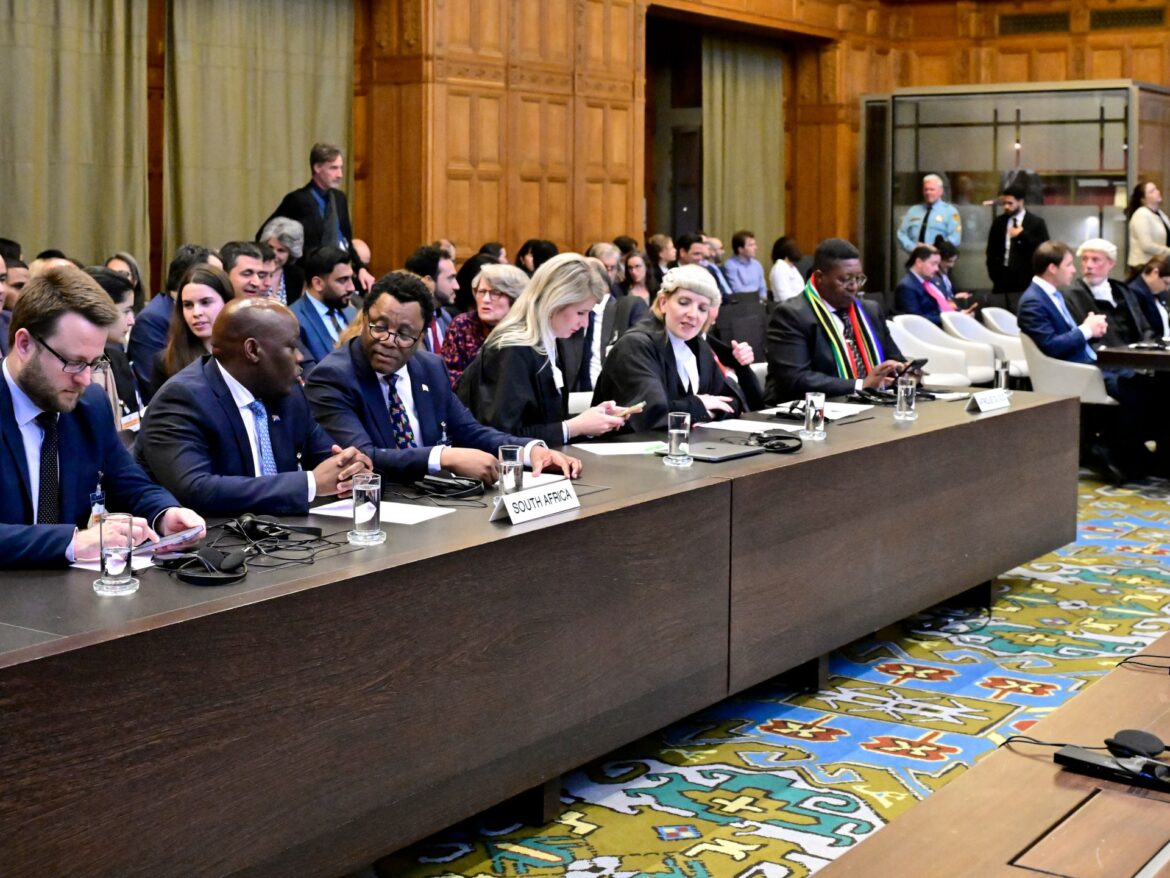The New York Times said that in 2011, former Israeli Prime Minister Ehud Barak warned of a “diplomatic-political tsunami” of criticism that might face Israel if its conflict with the Palestinians was not resolved. Today, Israeli foreign policy analysts believe that this tsunami seems closer than ever before. .
The newspaper explained in a report written by its correspondent Patrick Kingsley from Jerusalem that the United Nations International Court of Justice’s order for Israel to suspend its military campaign in Rafah is added to a growing list of diplomatic and legal moves that undermine Israel’s international standing.
This ruling came a few days after prosecutors at the International Criminal Court, another international court, called for the arrest of Israeli Prime Minister Benjamin Netanyahu and his Defense Minister Yoav Gallant, in a move that was supported by some of Israel’s old partners such as France.
This also comes in the same week that three European countries took a coordinated step to recognize Palestine as a state, following widespread campus protests in the United States against the Israeli campaign in Gaza, decisions taken by Turkey to suspend trade with Israel, and decisions by Belize, Bolivia and Colombia to cut off trade. Diplomatic relations with Israel.
Huge pressure
“This is not the levels of isolation of North Korea, Belarus or Myanmar, but it is isolation,” said Alon Pinkas, a former Israeli consul general in New York. “It creates a tremendous sense of pressure.”
Although the latest step taken by the International Court of Justice may not have immediate practical effects, these moves against Israel taken together show not only the decline of Israel’s international reputation, but also the decline of American influence, says former Israeli ambassador to Washington Itamar Rabinovich.
Rabinovich said, “There is a change in the rules of international politics. The rest of the world is on its way to bypassing the United States. It is as if it is saying to Washington: We cannot defeat you at the United Nations, but we now have two international tribunals and we will turn to these two places over which you have no control.”
More critical
Against this background – as the writer says – the United States and other Israeli allies, such as Germany, adopted a more critical tone of the Israeli government, even as they tried to defend it against foreign condemnations.
In recent months, US President Joe Biden has expressed increasing concern about Israel’s counterattack on Gaza, describing its strategy as “wrong” and some of its actions as “obscene,” and halting a shipment of bombs that were directed at it.
Germany’s position has also changed slightly, but Israel nevertheless feels that it is able to continue the war as long as the United States provides most of its financial and military aid, after Congress voted in favor of providing it with new military aid worth $15 billion.
Increasing isolation
As for inside Israel, analysts say that these moves could strengthen Netanyahu’s position, as the court decisions prompted ministers critical of his leadership to unite ranks again, and Pinkas said that rebuking foreign governments and institutions provides Netanyahu with an opportunity to present himself as a defender of Israel and strengthen his declining domestic support.
Israeli opposition leader Yair Lapid criticized the court’s ruling and said that “it was Israel that was brutally attacked and had to defend itself against a horrific terrorist organization,” but he also said that the ruling could have been avoided if “a rational and professional government had prevented the ministers’ crazy statements and stopped the criminals who… They burned aid trucks, and carried out calm and effective political action.”
Before concluding his report, Patrick Kingsley touched on Israel’s increasing isolation in the cultural and academic worlds. In recent months, universities in countries including Ireland, the Netherlands, Norway, Slovenia and Spain have announced that they have severed their relations with their Israeli counterparts or are considering doing so.
Thousands of artists signed an open letter in February demanding that the organizers of the Venice Biennale, one of the world’s most important art festivals, ban Israel from participating in this year’s gathering.



